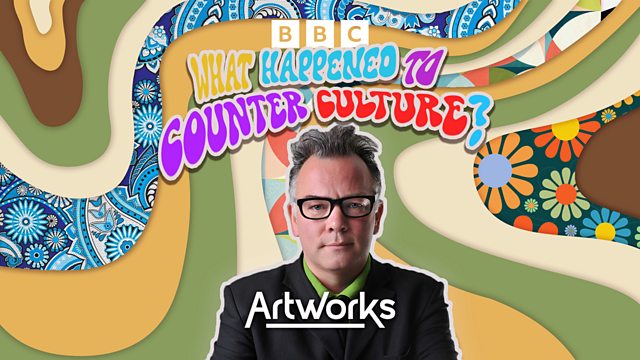5. Interzone
Comedian and author Stewart Lee explores the story and ideas of counter-culture since the end of the Second World War, and its uncertain status in today's digital world.
More than just a cultural trend – counter-culture became a social movement so powerful it shaped institutions, businesses, politics and the attitudes and aspirations of whole generations – including everything from haircuts to voting choices. In fact, it became so prevalent that it’s sometimes hard to remember how things have changed under its influence.
Comedian Stewart Lee presents a five-part series exploring the evolution and key ideas that have driven counter-culture from its beginnings with the Beats, folk and jazz in the 1950s, to its heights in the 1960s and 70s including the hippies and the early tech-communalists, the new liberation movements and punk, to the 1980s and early 90s, where political power on both sides of the Atlantic pushed back against the values of the ‘permissive society’.
Talking to artists, musicians, writers, activists and historians, Stewart continues to the present day asking where we are now, in the digital age of social media silos and the so-called ‘culture wars’ – what’s happened to counter-culture? Was it co-opted, did it sell out? Or did its ideas of freedom and identity become so entrenched within mainstream culture it’s legacy has become unassailable? Or has it migrated politically to the Right? Throughout the series, the counter-culture is explored not only in terms of its history, extraordinary cultural output and key events – but also its deeper political and philosophical impact, its continued meaning for our own age.
Part 5 - Interzone explores the confluence of the early rave scene and new waves of eco-protest in the late 80s/early 90s as possibly the last great counter culture in the UK before the arrival of the internet. Meanwhile the online world has made the idea and actuality of counter-culture much more difficult. Our far more fragmented digital society means there is no 'mono' culture or single idea of 'the Establishment' to push back against, as there was in the 1950s and '60s. Or has counter-culture become redundant - a victim of its own success, no longer necessary because historically it won many of it its key arguments? Others worry such gains are fragile and easily reversed. Despite their roots in the counter-culture, the tech companies have become a powerful force in society - would a new counter-culture mean disconnection before we can reconnect again?
Contributors include DJ and producer Norman Cook aka Fatboy Slim, musician and songwriter Damon Albarn, journalist and author John Harris, musician Brian Eno, founding member of Hard Art and fashion designer Clare Farrell, author and critic Olivia Laing, musician Nick Saloman, former managing editor of Rolling Stone Ed Needham, founder of Rolling Stone Jann Wenner, author and critic Kevin Le Gendre, historian of cyber culture Fred Turner and artist Jeremy Deller.
Presenter: Stewart Lee
Producer: Simon Hollis
A Brook Lapping production for ÃÛÑ¿´«Ã½ Radio 4
Last on
More episodes
Next
Coming soon
Broadcasts
- Thu 4 Sep 2025 09:00ÃÛÑ¿´«Ã½ Radio 4
- Sun 7 Sep 2025 23:00ÃÛÑ¿´«Ã½ Radio 4

